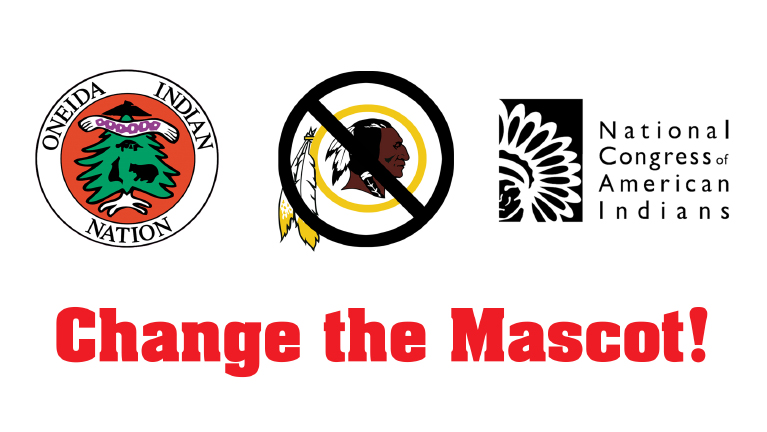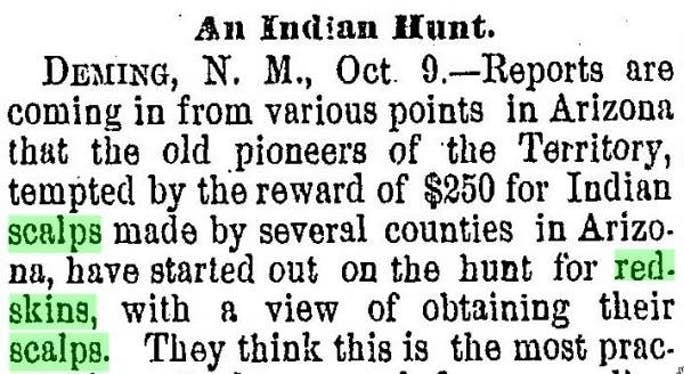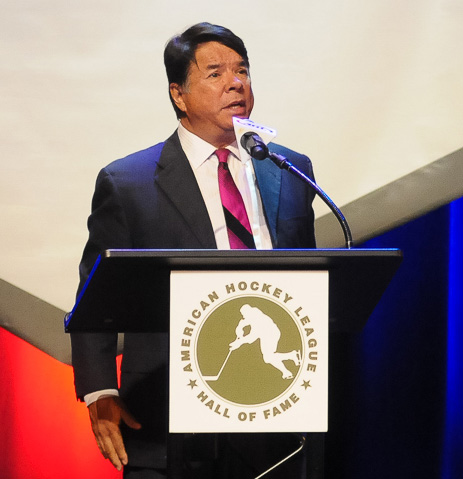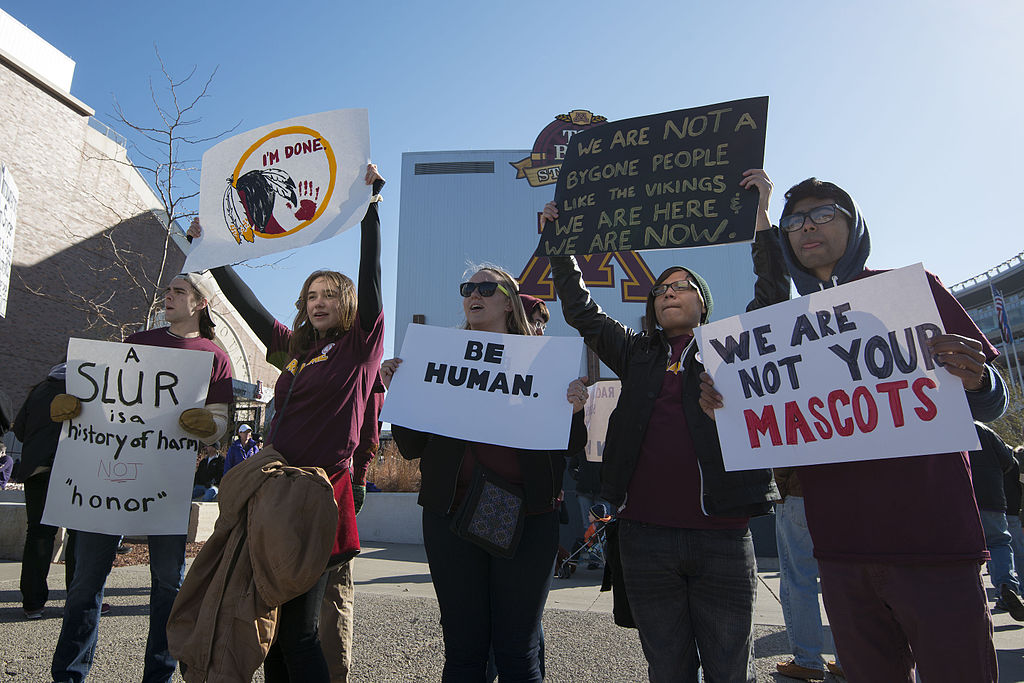Mascot Resistance
Oneida Indian Community
Sadiah Page
Appropriation NOT appreciation
Cultural appropriation comes in many forms. We see this in the clothes that people wear to the way that they talk. In terms of the cultural appropriation, sports teams across the United States have repeatedly exploited Indigenous traditions as well as exploit and deface the Indian community with imaging and names that are seen as extremely derogatory towards this large group of people. The Oneida Indian Nation is a federally recognized tribe located and headquartered in upstate New York where they have been since long before European colonialism. Making their mark in American history, the Oneida Indian Nation became the first ally to America when they joined the colonists during the American Revolutionary War. In 1794, after the victory over the British, first president of United States George Washington signed the Treaty of Canandaigua which thereby recognized the Oneida Nation as a sovereign entity. While historically being a major catalyst in history, the Oneida have also been a primary push for the Change the Mascot campaign against the Washington R******s and their entire organization. The Oneida launched the Change the Mascot campaign as a grassroots campaign that aims to garner both attention as well as provide information to people about the damaging effects of teams like Washington that are ignorant to the reasoning’s behind wanting the name changed. From protests to campaigns that involve radio and TV commercials, Oneida along with other tribes and activists have used their voice and means to make this issue no longer an issue and bring an end to the blatant disrespect towards their group of people.

Historical Components
So what exactly does the R-word mean? Where did it come from? Has it always been a negative identifier for Native people? History books and journals trace the word back to being used to the 1700's in reference to the Beothuk tribe out of Newfoundland in Canada. The Beothuk's would use red ochre paint on their bodies as a form of expression and culture but eventually led white European settlers to denote these people as 'Red men'. Ives Goddard, a Smithsonian historian, stated that initially the R-word was used as a way to identify the Natives from the colonists. The term was used during negotiations as well as in daily life from both sides. As time went on from the 1760's when it was used as a misinformed identifier, it began taking on the negative connotation that we know now. It became something that whites would use widespread in novels as well as movies (which goes into other deragatory imaging and vocabulary towards Natives such as savages). The Wizard of Oz writer, L. Frank Baum, even wrote several pieces of work that celebrated deaths of major chiefs and nobles within the Native American community such as Sitting Bull (1831-1890) and the Wounded Knee Massacre (1890). In one of his editorials written in 1890 after Sitting Bull's death and the massacre, he states "With his (Sitting Bull) fall the nobility of the R******s is extinguished, and what few are left are a pack of whining curs who lick the hand that smites them." The violence he continues on with calling for the annihalation of these R-words as well as the growing popularity at this time of sports teams using these terms, the word arrived at the disparaging, offensive definition we know and fight today. This was a small piece to a big puzzle of using fear mongering as a way for people to understand their point and somehow make it a widespread accepted opinion.

Dating back the mid 1880's, new revelations in just what the term meant took on a whole new definition when this wasn't just a racial slur and identifier, but was a call for the efforts of extermination of Native people. There were news articles that would be published and mass read by settlers across the United States that were told to be on the look out for 'red scalps'. Retaining the scalp of a dead Indian was worth upwards of $250. Bobby Wilson, a Sisseton-Wahpeton Dakota in Arizona, stated to the source that the word 'r******s' is unambiguously associated with the killing of Native Americans. It projected the approach of annhilation that L Frank Baum spoke of in his exerpts but to an actual bounty hunter level.
“It’s this idea that’s been painted in media that people who were doing all the fighting and dying were Indian men,” he said. “The matter of the fact was that whole families were being massacred – male, female, old, young – soldiers were going in and slaughtering countless human beings.”
Local Efforts from the Oneida
The Oneida Indian Nation along with several other tribes across the U.S. have been trying to draw both attention and education towards the use of the R-word and other deragatory terms/names for Natives. Back in 2013 within the home state of the Oneida, a school in Cooperstown, NY voted to change the high schools team mascot from the R-word to the Cooperstown Hawkeyes. While hundred of schools across the country have elected for new mascots and logos, what really drew the attention of the Oneida was the fact that the schools student body drew the vote for the school board. In other words, the students as a collective whole decided and recognized that R******s is indeed a term that does not describe Indigenous people and thus had the will power to have the name changed. This moved and captured the Oneida so much so that they donated $10,000 to the school to purchase new football team jersey. In that same year, the both Washington team owner Dan Snyder and NFL commisioner Roger Goodell recieved a letter from members of congress, whom were also co-chairs of the Congressional Native American Caucus, asking them to consider changing the name out of respect for the country’s native people. Congress introduced a bill that would amend the 1946 Trademark Act and cancel any trademark that used the “R-word”. Mr. Goodell eventually made an announcement regarding the controversy stating that teams and owners "need to be listening". During this time in 2013, the Oneida had just released their first commericals targeting the name/mascot change. It begs the question of how can high schoolers in a small central New York city recognize ignorance yet grown, rich men cannot?
Locally to Nationally
Changethemascot.org was initially launched by the Oneida in 2013 and has gained ground after releasing their first set of commercials and radio ads with the Sunday gamedays for Washington. A Youtube channel by the name of TheOneida is a channel that offers content that promotes language, development in communities, and many forums done by the campaign with guests speaking on the issues of the R-Word. In a symposium held on October 7, 2013 in Washington, DC Ray Halbritter, the Oneida Nation Representative states in his opening remarks
"No matter the history of something, if it is offending people then it is time to change it and this is a great time to do it. Regardless of the history. Regardless of its legacy. It is offensive. It is a dictionary defined offensive term."
Halbritter goes on to mention how football is supposed to be a unifying thing but yet the use of a racial slur is not a unifying force but instead a divisive epithet. The Hon. Eleanor Holmes Norton, a judge in the Washington DC area spoke during the symposium as well and related the historical context of the racial slur 'n****r/n***a'. In a city that is composed of a large population of minorites, she points to how an uprising of individuals occurs when a word that is historically against black people is used and how it makes one feel. This same anger needs to exist for Native Americans in our communities. The excuses of a 'term of endearment' and an 'appreciation' for ones culture is downright ingorance and shall be no more. What Hon. Norton is trying to paint along with Halbritter is that these terms that have been historically defined as blatant and straightforward racist need to be recognized as such. The Oneida releasing their commericals and radio ads during this time launched the conversation of how little the team will be affected. The team is still the team. If anything, one can argue that the team will grow stronger as the unifying force Halbritter stated will actually be just that.

Speaking on the basis of taking the name away and replacing it with something else, a club team called the Washington Arena Football Team and their owner Ted Leonsis named their team the 'Washington Valors' rather than their DC cpunterpart. Oneida representatives admired the organization as selecting a name that not only represents our country well, but especially the DC area as being the nations capital. Abe Pollin, the former owner of the NBA team the Washington Wizards changed their name from the Bullets to what it is now. Pollin was worried that the team name would denote violence and thus changed to something that does not offend anyone. Leonsis wanted to uphold this legacy of the late Pollin and went on a different path then the NFL team. Dan Scott has absurdly and repeatedly used 'honor' as a way to defend the racial slur and refuses to take the initiative to change it. Change The Mascot continues the conversation of pushing the football club to do so.
Exploitation at its Finest
At the heightened popularity of deragatory terms being used as sports names, the campaigning and divide from the sports world and the Indian community bridged farther and farther. Baseball teams such as the Cleveland Indians, basketball teams like Golden State Warriors, and even our local team of the Central Michigan Chippewas have benefited and profitted off of the exploitation of the Indian Community. Two of these three have dropped their Native imagery (Golden State dropped Native American imagery when relocated to Oakland, CA--Central Michigan now at sporting events are known as the 'Flying C's' but still retain Chippewa). Dan Scott of the Washington team has been completely oblivious to the continued backlash of the name and seen within the film 'More Than A Word' we see the continued exploitation of using community nobles and elders to paint this picture that it is a select few that seem to be against this issue. The Washington Post released a survey back in 2016 stating that '9 in 10 Native Americans aren’t offended by R******s name'. The demographics used were 80 percent who identify as politically liberal, 85 percent of college graduates, 90 percent of those enrolled in a tribe, 90 percent of non-football fans and 91 percent of those between the ages of 18 and 39. In the words of Dan Snyder around the results of the survey he state “The Washington R******s team, our fans and community have always believed our name represents honor, respect and pride, today’s Washington Post polling shows Native Americans agree. We are gratified by this overwhelming support from the Native American community, and the team will proudly carry the R******s name.” While all of this seems to be a win for the other side, it is important to remember that special interests may have had an effect on these answers. Cal State San Bernandino professor James Fenelon, a Lakota/Dakota from Standing Rock, compiled his own data and found that 67 percent of Native Americans find the term offensive compared to the Annenberg (the first initial survey done on this issue in 2004) and the Washington Post surveys. His reasoning for completing such a survey is that the most of society knows on some level that it is misleading to run uncritical and biased polls, and then reproduce results that don’t resonate with real experience or feelings. Collecting over 400 surveys himself, he stated that there is a much larger majority in the amounts of Indians that are against this racial slur.

Furthermore...
On June 18, 2014 the the U.S. Patent and Trademark Office canceled the trademark for the NFL team. Within the past few years this trademark case has been back and forth between the Washington team and Native American tribes. What is important to remember is that while trademarks and patents can be stripped away from the team, the real victory lies in Dan Scott listening to the people and recognizing that the team should change their name. Some prospective names that have been given are the Washington Redhawks, Renegades, Griffins, Skins, Redtails and many more. One writer of USA Today wrote something as simple as Washington Football Club. He stated that this was the safest and best option in terms of being a trailblazing team out of the nations capital using a name that no one else has in the NFL. Sure, there isn't a nickname for the team or further cultural appropriation of wearinf headdresses to games BUT it would still be Washington football.
The Change the Mascot campaign is a continued effort that not only the Oneida have gotten behind, but tribes such as the Apache, Cheyenne, Lakota, etc., have backed with their support. To understand the history of a word is one step to arriving at a conclusion that is alike in all minds of Americans around this controversy. How can a team that is supposed to be arguably one of 'America's Teams' when they are conciously turning a blind eye to blatant racism. To continue to spit honor and appreciation for reasonings for something is simple ignorance in a fight against what is right. When it comes to the N-word for African Americans, would it still make sense to say I say this N-word is blank and preach that I said it because I appreciate the person? No. Same could be said for Jewish people and words associated with them, Latinx and their racial slurs used towards them. The list goes on and on. Generational trauma is tied back to all of these. The Oneida have been a driving force in this continued fight and are still continuously active on their Twitter for the campaign as well as the website and youtube. Dan Scott and the NFL should grow both decency and insight on this matter and listen to what Ray Halbritter said in his symposium back in 2013...Even it offends one person, no matter the legacy or the history...It is offensive.
Change the Mascot.
Further Reading
Visit Changethemascot.org for more information on this grassroots campaign as well as ways to take action to fight the bigotry that exists in the mascot issues. I would also recommend visiting the Oneida Indian Community Youtube channel . to watch not only their symposiums done around the Washington team mascot resistance but also their daily advances in society. Watching the videos posted as well as visiting the website will allow you to garner and project your own opinion on this issue with facts rather than opinions. Also reading into other teams that are a part of this issue!Text Sources
History of Progress. Change the Mascot, Change the Mascot, Retrieved 19, April 2019
Image Sources
Change The Mascot Campaign-- Retrieved 12, April 2019
“Arthur Raymond Halbritter.” Wikipedia, Wikimedia Foundation, 27 Nov. 2018, Retrieved 19 April 2019